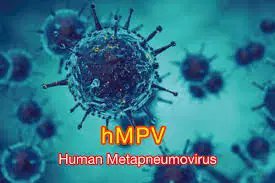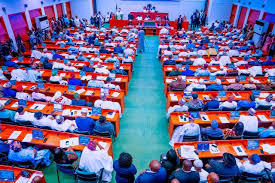By Adeyemi Adekunle
The Nigeria Centre for Disease Control and Prevention (NCDC) has issued an alert on the global rise in cases of human metapneumovirus (HMPV), reassuring Nigerians of the country’s robust preparedness measures. The health agency emphasized that while the virus has not yet been detected in Nigeria, national vigilance is being strengthened to mitigate potential risks.
In a statement released on Monday, the NCDC Director-General, Dr. Jide Idris, revealed that a dynamic risk assessment conducted in partnership with the Federal Ministry of Health and international organizations, including the World Health Organization (WHO), has classified the risk level of HMPV in Nigeria as moderate. The assessment reflects the government’s proactive approach to evaluating the virus’s potential impact and readiness to respond if it emerges.
Reports of increased HMPV infections in parts of the world, particularly China, have raised global concerns about the respiratory virus. Although the WHO has not declared HMPV a public health emergency of international concern, the NCDC stressed the importance of relying on verified information from credible sources to avoid panic. The agency called on Nigerians to be alert but not alarmed, reinforcing its commitment to safeguarding public health.
Human metapneumovirus is a respiratory pathogen that can cause illnesses ranging from mild, cold-like symptoms to severe respiratory infections. While the virus primarily affects vulnerable groups such as young children, older adults, and individuals with compromised immune systems, it can also spread among the general population. Symptoms include cough, fever, nasal congestion, and shortness of breath, which are often mistaken for other respiratory illnesses.
Dr. Idris highlighted the absence of a specific antiviral treatment or vaccine for HMPV, making preventive measures critical to minimizing its spread. “Adopting simple but effective habits such as regular hand washing, respiratory hygiene, and avoiding crowded places when unwell can significantly reduce the risk of infection,” he advised.
Preparedness measures are already in motion, according to the NCDC. These include enhanced surveillance systems, strengthened laboratory diagnostic capabilities, and engagement with global health partners to monitor developments. Health facilities across the country are also being equipped with resources to manage any potential cases, with healthcare workers advised to remain vigilant for symptoms of HMPV, particularly among high-risk individuals.
Supportive care remains the primary treatment for those infected with HMPV. Rest, hydration, fever management, and other symptomatic treatments are key to recovery, especially for patients with severe illnesses. Dr. Idris assured the public that the NCDC is collaborating closely with national and international partners to ensure Nigeria is prepared for any eventuality, emphasizing that lessons from past outbreaks have shaped the nation’s capacity to respond effectively.
The alert from the NCDC comes at a time when global health systems are recovering from the strain of the COVID-19 pandemic. Public health experts have pointed to the importance of early preparedness and transparent communication to prevent a recurrence of the challenges faced during the onset of the coronavirus. The NCDC’s proactive stance reflects a growing recognition of the need for swift action in addressing emerging health threats.
While acknowledging the heightened anxiety that global disease alerts may cause, the NCDC urged Nigerians to avoid spreading misinformation and focus on staying informed through trusted sources. Dr. Idris underscored the value of community engagement in preventing disease outbreaks, calling on local governments and civil society organizations to work together in raising awareness about respiratory health.
Health advocates have welcomed the NCDC’s alert and ongoing efforts to enhance national preparedness. Many have emphasized the importance of public compliance with preventive guidelines, noting that behavioral changes can play a significant role in curbing the spread of respiratory illnesses.
As global cases of HMPV continue to rise, Nigeria’s health system faces a critical test of its ability to anticipate and address emerging infectious diseases. The NCDC’s timely action and transparent communication set a strong foundation for tackling the virus, should it pose a direct threat to the country.




